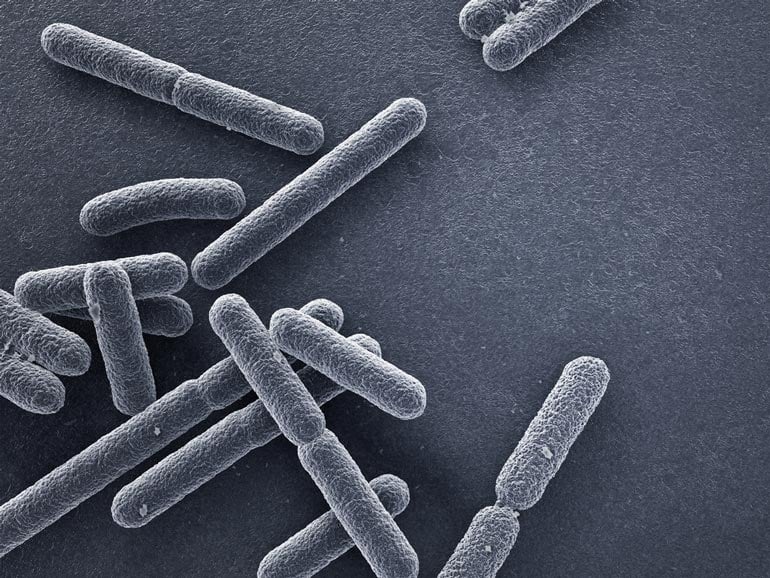Start 14-Day Trial Subscription
*No credit card required

Proving Negligence in an E. Coli Lawsuit
Learn how to prepare for an E. Coli lawsuit, from proving negligence to identifying contaminated food sources. Understand your legal rights and get tips on gathering evidence to ensure you receive the compensation you deserve.
You've been diagnosed with an E. coli infection and have the medical records to prove it. However, preparing for an E. coli lawsuit requires more than just a diagnosis. To build a strong case, you'll need to demonstrate either negligence or malicious intent. Understanding these legal nuances is crucial, as accidents can happen without anyone being at fault, which might impact the viability of your lawsuit. So, how do you prove negligence in an E. coli lawsuit?
Not All E. Coli Lawsuits Are Based on Negligence
While negligence is a common basis for E. coli lawsuits, it's not the only one. However, to prove negligence involves demonstrating four key elements: duty of care, breach of duty, causation, and damages. Let's break these down with an example:
- Duty of Care: The grocer is responsible for providing safe food.
- Breach of Duty: The grocer sells tainted lettuce that has been recalled.
- Causation: Consuming the tainted produce directly causes your E. coli infection.
- Damages: Your medical expenses are a direct result of the E. coli infection.
If the grocer had removed the recalled lettuce, you wouldn't have contracted the bacteria or incurred subsequent damages.
Exploring Other Bases for E. Coli Lawsuits
Apart from negligence, E. coli lawsuits can also be based on strict liability or can become a breach of warranty lawsuit:
- Strict Liability: This is easier to prove as you only need to show the grocer sold unsafe food that you consumed.
- Breach of Warranty: If the seller fails to uphold their warranty, such as an expiration date, you may have grounds for a lawsuit.
Preparing for Your E. Coli Lawsuit
To file a successful lawsuit, you need to gather substantial evidence. Here’s a step-by-step guide to help you prepare:
Identify the Food Source
If multiple people contracted E. coli from the same event, identifying the source becomes easier. For instance, if everyone ate the same dish at a catered work event, the caterer’s food is likely the cause. If you’re the sole plaintiff, you’ll need to recall everything you ate and drank up to a few weeks before symptoms appeared, as some E. coli strains have a delayed onset.
Prove the Food Is Contaminated
Health departments track E. coli cases and may test food items if an outbreak is suspected. This can help prove the contamination source. If no official investigation occurs, consider sending a sample to a private lab, despite the cost. Additionally, identifying other sick individuals can strengthen your case by showing a pattern of contamination.
Show Your Damages Are Caused by the Tainted Food
Regardless of the lawsuit's basis—negligence, breach of warranty, or strict liability—you must link your damages directly to the E. coli infection. This involves proving that the defendant's actions, such as failing to remove recalled items, caused your illness.
Types of Damages You Can Claim
In an E. coli lawsuit, you can claim various damages, including:
- Medical Expenses: Costs incurred from treatment.
- Lost Income: Wages lost due to illness.
- Mental Anguish: Emotional distress caused by the infection.
Consult your attorney to ensure all relevant damages are included in your claim.
Receiving Compensation for Your
How to Prepare for an E. Coli Lawsuit: A Comprehensive Guide
If you have been diagnosed with an E. coli infection and are considering legal action, it’s crucial to understand the steps involved in preparing for an E. coli lawsuit. Beyond the medical diagnosis, you will need to gather substantial evidence and prove certain elements to establish negligence or another legal basis for your claim.
Understanding the Basis of E. Coli Lawsuits
Not all E. coli lawsuits are rooted in negligence. While negligence is a common foundation, you can also file claims based on strict liability or breach of warranty. Let’s delve into these legal concepts:
Proving Negligence in an E. Coli Lawsuit
Negligence involves four key elements: duty of care, breach of duty, causation, and damages. Here’s an example to illustrate:
- Duty of Care: A grocer must ensure the safety of food items sold to consumers.
- Breach of Duty: The grocer fails this duty by selling recalled, tainted lettuce.
- Causation: You contract E. coli from consuming the contaminated lettuce.
- Damages: Your medical costs and other losses are directly linked to the infection.
In this scenario, the grocer’s failure to remove the tainted lettuce led to your illness and subsequent damages.
Other Legal Bases: Strict Liability and Breach of Warranty
- Strict Liability: You don’t need to prove negligence; you only need to show the grocer sold unsafe food that you consumed.
- Breach of Warranty: If the seller does not uphold their warranty (e.g., expiration date), you might have grounds for a lawsuit.
Steps to Prepare for Your E. Coli Lawsuit
To build a strong case, follow these steps:
1. Identify the Food Source
Tracing the source of contamination is crucial. If multiple individuals contracted E. coli from the same event, identifying the source is easier. For instance, if everyone ate the same dish at a catered event, the caterer’s food is likely the cause. As a sole plaintiff, you’ll need to recall everything you consumed up to a few weeks before symptoms appeared, as some E. coli strains have delayed onset.
2. Prove the Food Is Contaminated
Health departments may investigate E. coli outbreaks and test food items for contamination. This can support your case. If no official investigation occurs, you might need to send a food sample to a private lab, though this can be costly. Identifying other affected individuals can also strengthen your case by showing a pattern of contamination.
3. Show Your Damages Are Caused by the Tainted Food
Whether your lawsuit is based on negligence, breach of warranty, or strict liability, you must link your damages directly to the E. coli infection. This involves demonstrating that the defendant’s actions, such as failing to remove recalled items, caused your illness.
Types of Damages You Can Claim
In an E. coli lawsuit, you can claim various damages, including:
- Medical Expenses: Costs incurred from treatment.
- Lost Income: Wages lost due to illness.
- Mental Anguish: Emotional distress caused by the infection.
Consult your attorney to ensure all relevant damages are included in your claim.
Receiving Compensation for Your E. Coli Lawsuit
Proving negligence in an E. coli lawsuit can be complex, but with the help of an experienced attorney, you can navigate the legal process more effectively. An attorney will assist in gathering evidence, presenting a strong case, and ensuring you receive the compensation you deserve. Their expertise can significantly enhance your chances of a favorable outcome, making the entire process smoother and more successful.
For those facing an E. coli infection and considering legal action, understanding the basis of your lawsuit and preparing thoroughly is essential. With the right legal support, you can effectively pursue justice and compensation for your suffering.



